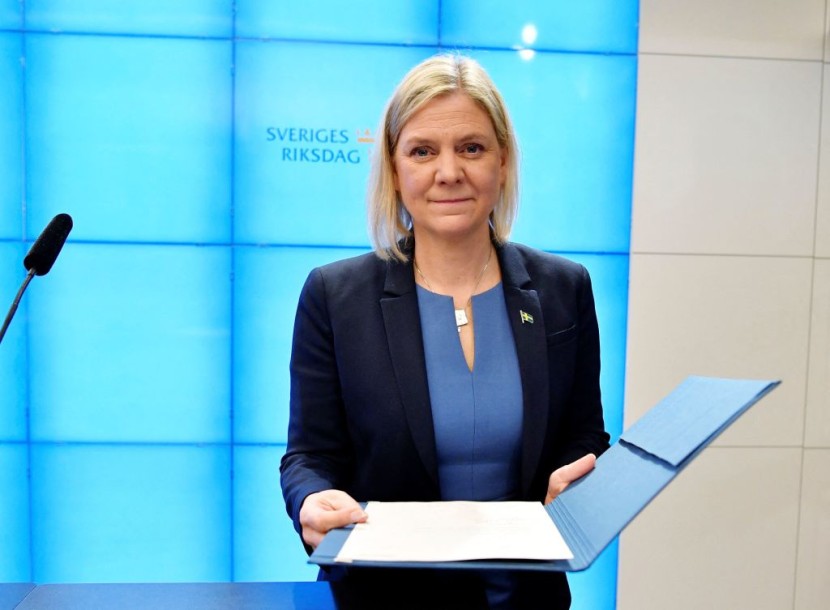
Sweden just recently re-elected its first female Prime Minister, Magdalena Andersson, after a contentious election last week that resulted in the official resigning hours after being elected due to the collapse of her coalition.
The 54-year-old official is the former finance minister who currently leads the Social Democratic Party. On Monday, Andersson was re-elected by a slim margin, where she made history as she officially takes office on Tuesday.
Sweden's First Female Prime Minister
The incident follows last week's incident when Andersson decided to step down after being elected as the country's first female prime minister after a budget defeat in parliament made a coalition partner to quit.
Sweden's government rejected its own budget proposal and instead chose one that the opposition presented. The group includes the right-wing populist Sweden Democrats, forcing the Green Party to quit the two-party minority government.
In a news conference after the collapse of her coalition, Andersson said that she did not want to lead a government that could have its legitimacy questioned. It was previously reported that the Swedish prime minister is expected, by convention, to resign from their position if a coalition party leaves the government, NPR reported.
The Monday vote held in Sweden's parliament, the Riksdag, showed that out of the 349 members, 101 voted yes, 75 abstained, and 173 voted no. under Sweden's political system, an individual can be appointed prime minister as long as they avoid having the majority of members vote against them.
In a news conference, Anderson said, after the vote, that she was ready to lead Sweden forward, building on a program that focused on welfare, climate change, and crime. However, lacking the support of other parties, the 54-year-old will most likely struggle to pass legislation in parliament because of center-left Social Democrats holding 100 of 349 seats.
Despite being elected as Sweden's first female prime minister, Andersson has yet to implement a budget put together by some of her right-wing rivals. Additionally, the prime minister is expected to lead a fragile minority without sufficient support from the Greens, who have been considered crucial coalition partners since 2014, BBC reported.
Divisive Political Environment
Andersson's fragile situation shows Sweden's increasing fragmentation and divisive political landscape. The environment makes it much more difficult for officials to maintain a stable government. The 54-year-old's narrow election win suggests she will face significant obstacles in tackling climate change, welfare, and crime.
In answering questions, Andersson said that someone had to step up and become Sweden's prime minister, saying that there seemed to be no alternative. The 54-year-old's election win as a prime minister makes her the successor to former prime minister Stefan Lofven, who had a no-confidence vote against him in June.
A political scientist at Gothenburg University, Ulf Bjereld, said that Andersson had a reputation for being toward the right. He said that finance ministers often lean that way, arguing that it was part of the "job description."
But during the pandemic, Andersson said that her conservative positions have softened, expressing more openness to borrowing money to fund green investments in the industry. She also said that she was looking to take back control of the welfare sector from the private sector, the New York Times reported.
Related Article:
Kamala Harris Receives Flak For Purchasing A $600 Le Creuset Pot During Paris Trip
© 2025 HNGN, All rights reserved. Do not reproduce without permission.








